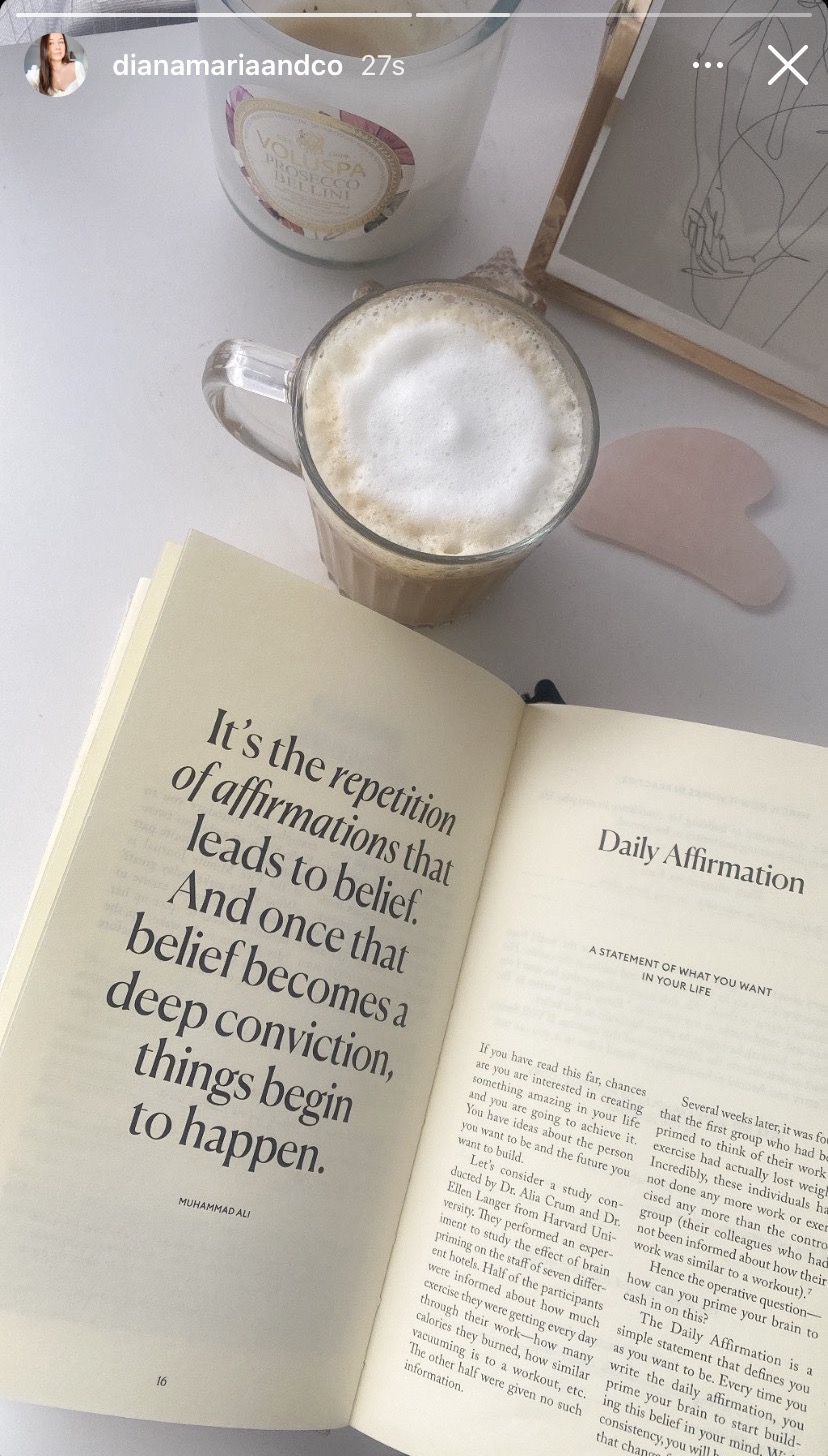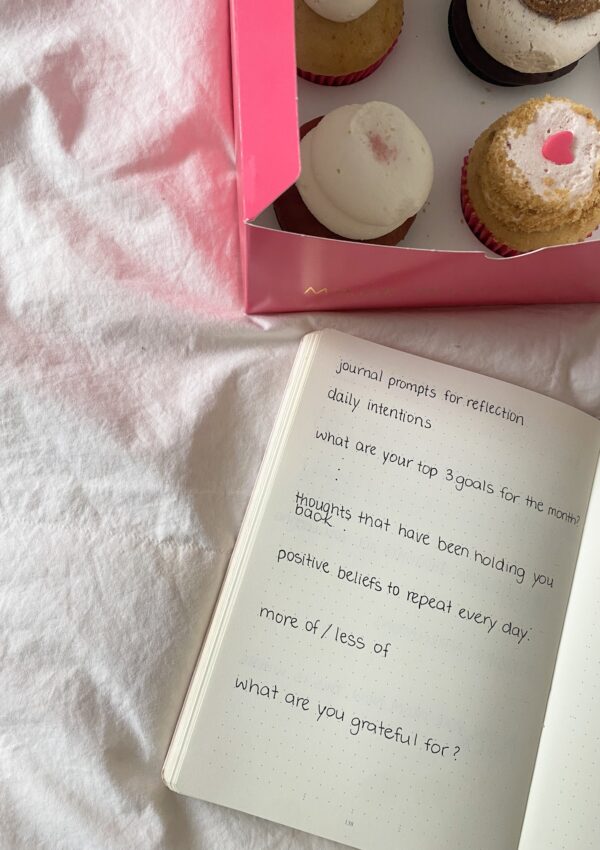
Journal prompts for anxiety are such a great tool you can use to help relieve stress when it becomes overwhelming.
Anxiety has a way of sneaking up on you when you least expect it and can completely sabotage your mood. It's one of the worst feelings and if you've ever experienced anxiety, then you've also probably tried just about everything to try and get rid of it. You can try everything, from deep breaths to taking a walk outside, and still have that dreadful feeling in the pit of your stomach.
Journaling is a common practice to use when it comes to dealing with anxious thoughts. Journal prompts for mental health are a staple in my weekly routine to unwind and release any stress or worries I have.
Studies show that journaling has helped people improve their wellbeing, and can alleviate stress and decrease anxiety. When you're anxious, your first thought might not be sitting still and breaking out your pen and journal.
If you're not seasoned in journaling, you could feel overwhelmed by the thought of having to write things down when you have no idea where to start. This is where journal prompts come in.
These journal prompts are prompts I swear by on stressful days. They're curated to guide you through your anxiety to help you work through your thoughts to find stillness. I love using these when I'm feeling stressed and hope you enjoy them as much as I do!
Here are the best journal prompts for anxiety to add to your weekly routine.
The Best Journal Prompts For Anxiety
1. On a scale of 1-10, how anxious am I feeling?
It's helpful to know exactly how anxious you're feeling. Rate your anxiety on a scale of 1-10 to see where you fall in this moment. This prompt becomes helpful the more of these sessions you do, as you can reflect on your anxiety and see when it comes up most.
2. Make a list of the top 5 thoughts making you anxious
Make a list of the top 5 thoughts that are making you the most anxious. While you may have more thoughts that come up, stick to the top 5 thoughts for now. We'll address the rest of the anxious thoughts later on in the prompts.
It's helpful seeing exactly what thoughts are making you anxious, and whether or not there's a pattern and thoughts that arise repeatedly.
3. Write down the worst case scenario that could happen
If you're anxious, you're more than likely worrying about the worst case scenario that could happen. Write down your worst case scenario to get it out of your head and put it on paper. Letting this thought live in your mind gives it the power to ruin your mood and your outlook on the day.
While this won't make the thought stop entirely, it can relieve some of the stress and anxiety it brings you.
4. Are my worries realistic?
Think about whether your worries are genuinely realistic. While your anxiety is doing its best to tell you they are, take the time to rationally think about your situation and the possible outcomes. Is there more than one outcome to the situation? If so, focus on other possibilities that could happen, and how it would feel if they did.
5. Have I felt this way before? How did the situation turn out?
Ask yourself whether you've felt this way before about a different situation. If you did, think about how the situation unfolded, and what ended up happening. Was it as bad as you expected it to be? Did your worrying help improve the situation, or make any difference in the outcome?
Most of the time, things don't go as badly as we imagine they will in our heads. Thinking about past situations can help you see your situation with a more rational, calm point of view.
6. Write down the best case scenario that could happen
What if everything goes right? It's easy to enter the loop of worrying about what will happen if it all goes wrong. But what if it doesn't? By imagining the best case scenario, you'll start seeing it as a possibility, rather than a far away vision. Pivot your thoughts over to a positive outcome, even if it seems out of reach.

7. What are my biggest anxiety triggers? How can I limit or better deal with them?
Think about what your biggest triggers are for your anxiety. What were you doing or thinking about before your anxiety came on? Write it out to see if you can find a common link between your major triggers.
Make a list of things you know trigger your anxiety, and jot down a few ideas of how you can limit or deal with them. Maybe you need to limit using your phone first thing in the morning, drink less coffee, or take a break from social media apps. I know for me, using my phone when I wake up can lead to stress and anxiety that snowballs and is hard to stop later on.
8. Make a list of things that help soothe your anxiety
Write out a list of things that help soothe your anxiety. This part is entirely unique, as everyone has a different way of unwinding and finding stillness. Whether you love a good yoga session, stepping out into nature, playing a sport, or reading a book, write it down.
Look at your list and think of ways you can do more of these practices in your daily routine.
9. Who can I turn to when I'm feeling anxious? Why?
Think of someone who supports you when you're feeling most anxious. Who is that person in your life? Write down all of the people who help you feel better as well as how they make things feel lighter.
10. What are 3 things I'm proud of myself for?
Anxiety tends to make us feel unworthy, unaccomplished, and negative about ourselves. Think about at least 3 things you're proud of yourself for. This doesn't have to be career-related and it can be something as simple as waking up early this week or creating a beautiful living space you feel good in.
Practicing positive self-talk and self-love takes time, but you can start by pointing out what you've done right with this journal prompt.
11. What thoughts, fears, or beliefs do I need to let go of? How are they hindering me?
It's time to write down your limiting thoughts, fears, and beliefs. These are things you say to yourself consistently, and believe about yourself. After writing out these thoughts, write down how they have and continue to hinder you in your growth. Have they stopped you from pursuing something or going after a dream?
Putting this down on paper is a great way to let yourself reflect on how impactful limiting beliefs can be and have been in your life. You might not even know you're doing it but this prompt will help you catch yourself and shift your thoughts.
12. Reflect on a moment where you experienced "failure". What did you learn from it?
Reflect on a moment in your life where you "failed" or when something didn't go to plan. What happened afterwards? Did you learn from the moment, and was the failure as awful as you thought it would be?
Most of the time, these moments open us up to new lessons, and we come out stronger on the other end of them. I know for myself, the moments where I thought I was failing weren't failure at all, and I found new, better opportunities on the other side.
13. Mind dump: write out any other anxious thoughts you still have
If you still have any lingering anxious thoughts left, write them down in a mind dump. Write out every thought that comes to mind. Picture yourself writing the thoughts down and releasing them as you do.
14. What and who am I most grateful for in my life today?
Practicing gratitude is an essential part of journaling and finding joy in the every day. I practice gratitude every single day and love how it's made me appreciate the small but beautiful things in my life.





Leave a Reply